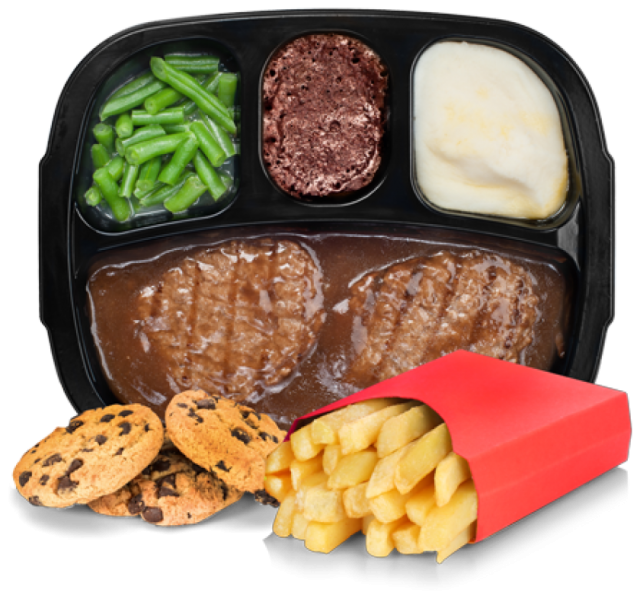Limiting processed food products helps you control your calorie intake and makes it easier to maintain a healthy weight.
We understand. You lead a busy life, and you sometimes feel that you don’t have enough time to prepare a meal or cook. Fast food can be tempting and more convenient, but over time, eating that way can have negative impacts on your health and lead to weight gain, which can increase your risk for cancer.
Skip the junk food.
Just one oversized fast food meal can load your body with more calories than the average person needs in an entire day.
- Fuel up on fast foods that feature minimally processed delicious vegetables, fruit, whole grains and beans. You’ll feel better eating nutritious fast foods with more fiber and less calories.
- Limit common processed foods such as chips, cookies, candy bars, desserts, processed baked goods, sugary cereals, and fried foods. Instead keep carrot sticks and hummus handy, bring fruit to the office or keep a small bag of nuts at your desk. That way you can snack healthily.
- At the grocery store, read the Nutrition Facts Labels on packaged foods to compare the calories per serving, sugar, fat and sodium content and select minimally processed foods with more fiber.
Most “fast foods” and other processed foods are high in calories and low in nutrients.
These “fast foods” are readily available convenience foods that are high in calories and served in large portions. Speed of preparation is not the important factor; it’s the high fat, high sugar and low fiber and nutritional quality that’s important.
A diet rich in fast foods including burgers, fried chicken pieces and fries typically served in franchise outlets, coupled with sugar-sweetened beverages and processed foods made with refined flour and added sugar can result in quick weight gain that is difficult to lose. As weight accumulates, it can lead to overweight and obesity and increase a person’s cancer risk.

Check In With Your Health
The choices we make each day can help reduce our risk of cancer.
AICR's new Cancer Health Check will help you learn more about your
choices and how you can stack the odds in your favor.






